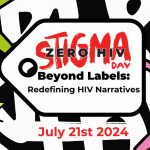Perhaps the single most important characteristic of the AIDS response – one that holds lessons about efforts to address other health challenges – is the central contribution of people living with HIV and those in the communities who have borne the brunt of HIV, including LGBTI people, sex workers, and people who use drugs. For no other health problem has the involvement of affected individuals played so vital a role.
The emphasis on empowerment and autonomy of people living with HIV stretches back to the beginning of the AIDS response: in 1983, the Denver Principles condemned efforts to label people living with HIV as passive victims. In Paris in 1994, 42 heads of state and national representatives endorsed the Greater Involvement of People Living with HIV/AIDS, or GIPA.
GIPA requires the meaningful involvement of people living with HIV in the programmatic, policy and funding decisions and actions that affect our lives. This is a matter of democratic principle, calling on the leaders and institutions that shape the conditions of our lives, to do so based on our voices, experiences, needs, and desires.
This is an excerpt of an article originally published on the International AIDS Society (IAS) blog. To read the full article on the IAS blog, click here.

Laurel SpragueCourtesy of Laurel Sprague
Laurel Sprague is the executive director of the Global Network of People Living with HIV (GNP+).
Click here for more about GNP+ and click here to read a POZ Q&A with Laurel Sprague.







Comments
Comments